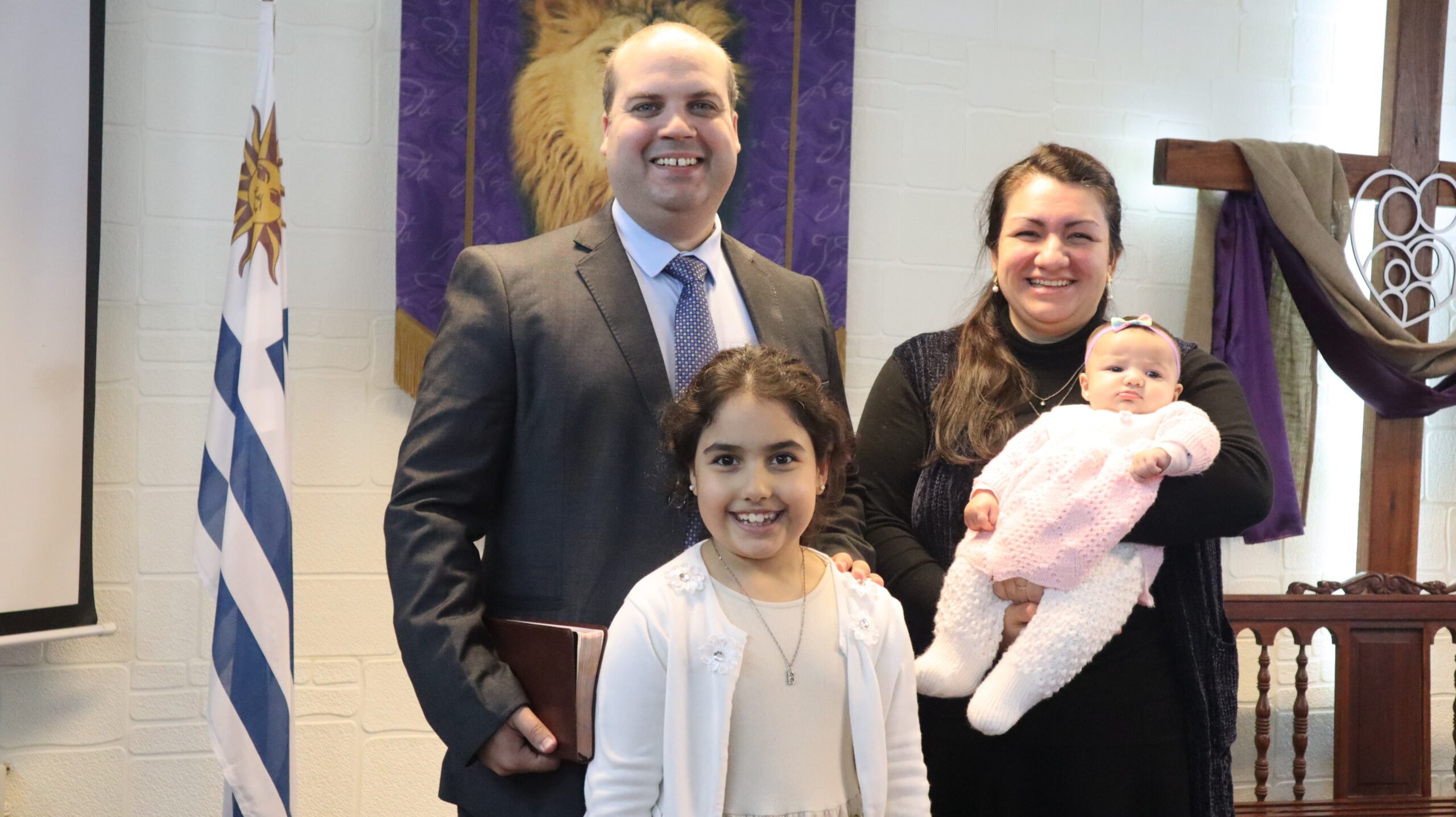About The Missionary
TESTIMONY
Juan Jose Terryn Correa was born in Montevideo, Uruguay. He attended church but knew something was missing in his life. In December 2004, at the age of 14, he repented of his sins and trusted Jesus Christ. His family did not understand his lifestyle change, but he quickly realized the truth of the verse “I can do all things through Christ which strengthens me” Philippians 4:13.
Andrea was born into a Christian home and accepted Christ when she was 7 years old. Today, they have two daughters.
CALL TO SERVICE
When Juan became a Christian, he enjoyed being active in the ministries at his church. During a missions conference in 2011, God touched his heart and called him to dedicate 100% of his life to winning souls. When Andrea was 13 years old, she made the decision to consecrate herself to God, to give her life in service to Him. Their desire is to serve the Lord in ministry for the rest of their lives. Currently they are planting a church in western Uruguay.
Latest Prayer Letter
Project Giving Opportunities
Uruguay Summer Camp & VBS
- Need: $1,500
2026 Summer camp($1500) & VBS ($500)
- Need: $2,000
Bible ($1,000), Sunday School Material ($300)
- Need: $1,300
Laptop ($500), Acoustic Guitar ($400)
- Need: $900Updates From The Field
Sorry, there are no updates at this time.
About The Field:
Uruguay, a small South American country situated between Argentina and Brazil, encounters a mix of economic and social challenges influenced by its historical development, political stability, and cultural identity.
Economically, Uruguay has achieved relative stability with a diverse economy, including agriculture, services, and tourism. However, challenges persist, such as income inequality, dependence on agricultural exports, and vulnerability to global market fluctuations. The country faced economic crises in the early 21st century, leading to structural reforms and austerity measures.
Social challenges in Uruguay are diverse. Access to quality education is generally high, but disparities exist between urban and rural areas. Healthcare accessibility is well-established, yet issues of affordability and regional disparities persist.
Uruguay’s historical and cultural identity is shaped by a mix of European influences, with Spanish and Portuguese colonial histories. The majority of the population identifies as Christian, primarily Roman Catholic. However, Uruguay is known for its secularism, and the influence of the Catholic Church in public affairs has diminished over time.
Political stability in Uruguay has been a defining feature, with a democratic governance structure. The country experienced periods of military dictatorship in the 20th century, but since the return to democracy in the mid-1980s, political stability has prevailed.
While Uruguay is relatively homogenous in terms of ethnicity, cultural diversity exists, with influences from European immigration. The country has a history of progressive social policies, including early adoption of LGBTQ+ rights and a commitment to social welfare.
Environmental sustainability is a growing concern in Uruguay, with challenges related to deforestation, water management, and agriculture impacting ecosystems and rural communities.
